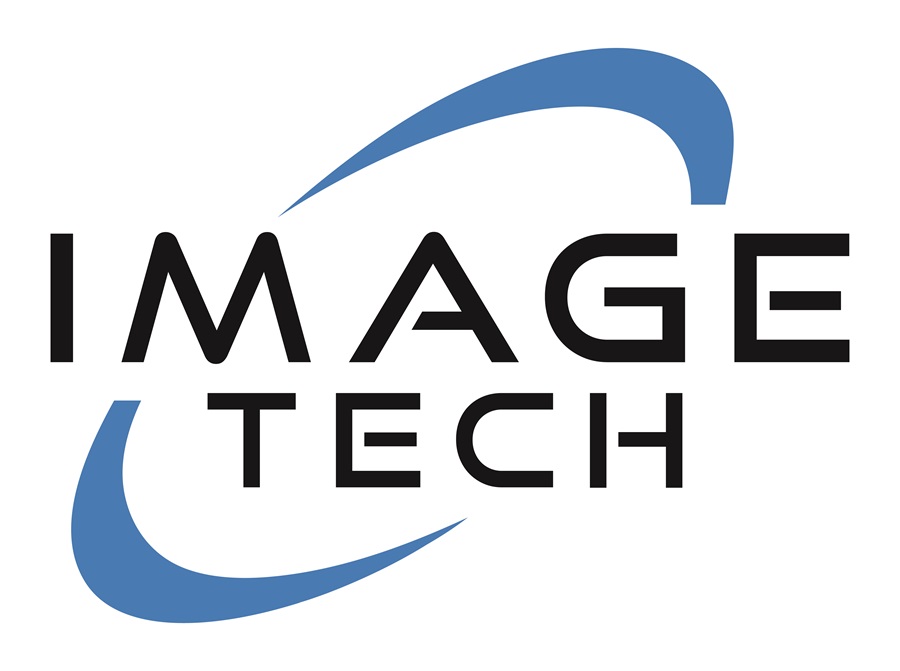Online gambling has surged in popularity across Spain, reshaping not only how people entertain themselves but also the economic landscape. As more players turn to digital platforms, local businesses—especially traditional gambling establishments—are feeling the ripple effects. This shift raises important questions about how online gambling influences local economies and whether it’s a boon or a challenge for nearby industries.
We can’t ignore the growing role of online gambling in Spain’s economy. From job creation in tech and marketing to its impact on tourism and hospitality, the industry’s reach is undeniable. But what does this mean for small businesses that rely on foot traffic or for communities grappling with changing consumer habits? By diving into these dynamics, we can better understand the broader economic implications and uncover opportunities for local businesses to adapt and thrive. For entrepreneurs looking to stay ahead, participating in a Marketing Your Business Workshop can provide valuable insights on how to navigate these shifts and effectively reach new audiences..
Overview Of Online Gambling In Spain
Online gambling has grown significantly in Spain, fueled by widespread internet access and evolving consumer behavior. According to Spain’s Dirección General de Ordenación del Juego (DGOJ), the online gambling market generated €850 million in gross gaming revenue (GGR) in 2022, reflecting continuous expansion since its regulation in 2011. Among the popular slot games contributing to this growth is Gemix Slot, a vibrant and engaging game known for its cascading reels and cluster-based wins. Developed by Play’n GO, Gemix offers unique world progression, bonus features, and colorful themes that appeal to both casual and seasoned players, making it a standout choice in the online casino landscape.
Regulatory Framework Driving Growth
In 2011, Spain implemented the Gambling Act, establishing a regulated online gambling market. This law promoted transparency, ensured player protection, and allowed licensed operators to flourish. The act also enabled tax contributions from the industry to local economies, creating funding streams for public services.
Market Segments And Consumer Preferences
The Spanish online gambling market consists of sports betting, casino games, and poker. Sports betting accounts for the largest share, comprising 50% of the total GGR. Casino games, including slots and roulette, represent 40%, while poker contributes 8%. Growth in mobile platforms has driven user engagement, with 70% of users accessing services on mobile devices.
| Segment | Revenue Contribution (%) | Popular Games/Activities |
|---|---|---|
| Sports Betting | 50% | Soccer, Tennis |
| Casino Games | 40% | Slots, Roulette |
| Poker | 8% | Online Tournaments |
Economic Benefits To Local Businesses
Online gambling indirectly supports local businesses through advertising, digital marketing, and IT services. Many operators outsource services like server hosting, software development, and marketing campaigns, boosting sectors outside gambling. The industry also creates high-skill employment, with companies hiring locally for roles in tech and compliance.
Challenges And Consumer Concerns
Although the industry generates economic benefits, concerns about problem gambling persist. In 2022, the government introduced stricter advertising regulations and increased funding for awareness programs to address addiction. Additionally, some traditional gambling venues experience declining revenues due to consumer shifts toward online alternatives.
Spain’s regulated online gambling market continues to thrive, presenting economic opportunities and challenges alike.
The Growth Of The Online Gambling Industry
Spain’s online gambling market has consistently grown over the past decade, driven by technological advancements and regulatory frameworks.
Statistics and Trends
Spain’s online gross gambling revenue (GGR) reached €346.3 million in Q2 2024, a 10.8% rise compared to Q2 2023. For all of 2023, the GGR totaled €1.24 billion, reflecting a 28.4% year-on-year increase. Casino games led the growth with €171.7 million in Q2 2024, making up 49.6% of GGR. Sports betting contributed €145.5 million. Quarterly comparisons indicate consistent upward momentum, with GGR in Q3 2024 slightly increasing to €348.1 million.
| Quarter | Year | GGR (€ Million) | Growth Rate (%) |
|---|---|---|---|
| Q2 | 2023 | 312.3 | – |
| Q2 | 2024 | 346.3 | 10.8 |
| Q3 | 2024 | 348.1 | 14.0 |
Key Drivers Behind The Growth
The sector’s rapid expansion can be attributed to mobile technology, regulatory support, and consumer preferences. Mobile gambling accounts for over 70% of user activity, boosting accessibility. The Spanish Gambling Act ensures market regulation, fostering player trust and international investment. Additionally, the popularity of online casino games and live sports betting consistently attracts new audiences.
Performance of Key Segments
Casino games and sports betting dominate Spain’s online gambling industry. Casino games drove nearly half (€171.7 million) of Q2 2024 revenue, followed by sports betting (€145.5 million). Smaller segments like poker and bingo also contribute but remain niche markets. This diversified revenue base reduces dependence on any single sector.
Spain’s growing tech ecosystem and increasing digital adoption continue reinforcing the industry. Key insights include significant growth trends, consumer shifts, and reliable regulatory factors. For detailed sector information, the Spanish Directorate General for Gambling Regulation offers a resourceful platform.
Positive Economic Impacts On Local Businesses
The rapid growth of online gambling in Spain has significantly benefited local businesses, directly and indirectly, in various sectors.
Job Creation and Market Opportunities
Since 2019, online gambling has created over 800 jobs in Spain, primarily in hubs like Ceuta. Roles in management, engineering, marketing, and customer service are actively expanding the employment market. The sector fosters high-skill job opportunities, supporting young professionals and local economies.
Rising Revenues for Supporting Services
The arrival of gaming companies has bolstered ancillary industries like real estate and office rentals. Property owners report increased demand, boosting rental values and local investments. Catering businesses and transportation services have similarly gained from the influx of employees and businesses to these regions.
Revenue Impact on Local Sectors
| Sector | Revenue Contribution | Note |
|---|---|---|
| Office Rentals | 15-20% annual rise | Driven by demand in tech-centric hubs like Ceuta |
| Real Estate | Double-digit growth | Enriched by employee relocation and new company setups |
| Digital Advertising | €120M+ annually | Utilized extensively by online gambling brands for targeted marketing[1] |
Boosting Technological Advancements and Digital Innovation
Online gambling drives technological innovation in Spain. Companies invest in AI, cybersecurity, and mobile platform optimization to enhance user experience. These advancements are impactful for related sectors like fintech and software development, promoting a tech-forward economy[2].
[1] https://www.reuters.comChallenges And Negative Effects
Spain’s online gambling market, while economically significant, presents challenges for local businesses and traditional gambling venues. Increasing competition and regulatory concerns highlight its complex impact.
Competition With Brick-and-Mortar Gambling Establishments
Online gambling attracts players with convenience and accessibility, reducing footfall at physical establishments. Traditional venues, such as casinos and betting shops, report decreased revenues, impacting employment. The €850 million online GGR in 2022 exemplifies this competition.
Financial Strain On Small And Local Businesses
Businesses reliant on foot traffic, like bars and retail shops near traditional venues, see reduced income as consumers shift online. This decreased patronage affects local jobs and their economic stability.
Social And Regulatory Pressures
Unregulated gambling sites flourish due to Spain’s advertising restrictions, bypassing consumer protections. Fraudulent activities in the online market create financial challenges for operators. Regulatory gaps worsen the economic strain.
| Metric | Impact |
|---|---|
| Online Gross Gaming Revenue (2022) | €850 million |
| Annual Market Growth (2023) | 28.4% |
| Mobile Gambling Share | 70% |
According to a report by the Directorate-General for the Regulation of Gambling (DGOJ), stricter controls are needed to address economic losses from regulatory loopholes and online fraud [1]. Local businesses near casinos report revenue drops due to this growing shift toward digital platforms, showing the need for adaptation strategies.
Potential Strategies For Balance And Sustainability
To balance economic benefits with community impact, strategies must address collaboration, policy integration, and responsible gambling practices.
Forging Partnerships Across Industries
Collaboration strengthens local economies. Partnering online platforms with hospitality, transportation, and retail sectors creates mutual growth. For example, cross-promotions with bars or hotels attract targeted audiences while bolstering industries.
Promoting Responsible Gambling Initiatives
Responsible gambling builds trust and ensures long-term sustainability. Tools like self-exclusion options or deposit limits reduce addiction risks and encourage safe practices. Government and operator collaboration on public awareness campaigns further safeguards user well-being.
Advancing Policy for Economic and Social Alignment
Policies should integrate online gambling with traditional businesses. Offering tax incentives to invest in local partnerships fosters shared growth. Strengthened enforcement against unregulated websites enhances economic transparency and security.
| Online Gambling Metric | Value in Q2 2024 | Share in Total GGR |
|---|---|---|
| Casino Games Revenue | €171.7 million | 49.6% |
| Sports Betting Revenue | €145.5 million | 41.9% |
| Online Poker Revenue | €25.6 million | 7.4% |
Strengthening Urban and Workforce Development
Government-backed workforce programs linked to online gambling businesses could bridge skill gaps. Encouraging IT and marketing roles ensures job creation aligns with tech-driven demands. Real estate development tied to new industry hubs furthers regional economic contributions.
Strategic actions spanning diverse disciplines amplify the benefits of Spain’s growing online gambling sector while mitigating disadvantages.
Conclusion
Spain’s online gambling market continues to reshape local economies, offering both opportunities and challenges. As the sector grows, it’s crucial that we find ways to support traditional businesses while embracing innovation. Collaboration between online platforms and local industries can unlock new avenues for mutual growth.
By promoting responsible gambling and refining regulatory frameworks, we can address community concerns and ensure a balanced approach. The future of Spain’s gambling landscape depends on fostering partnerships that benefit both digital and traditional sectors, creating a sustainable and inclusive economic environment.


























